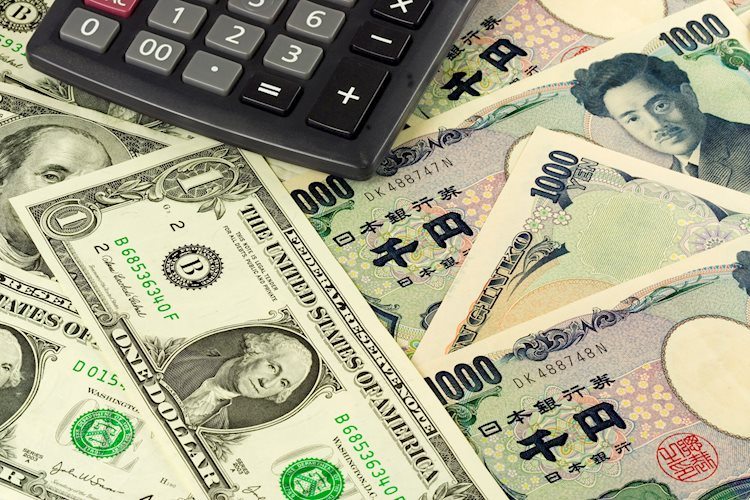The USD/JPY pair is currently trading near 152.00 as traders await the outcome of the US presidential election. The market is uncertain about whether former President Donald Trump or Democratic contender Kamala Harris will emerge victorious, leading to a potential impact on the US Dollar. Analysts predict that a “Red Wave” favoring Republicans could trigger a USD rally based on past policies implemented by Trump, such as tariffs, tax cuts, and deregulation, which may affect the outlook for the Eurozone and China.
Currently, the US Dollar is weakening, with the US Dollar Index (DXY) dropping to 103.70. Additionally, investors are closely monitoring the upcoming Federal Reserve’s monetary policy decision, expected to be announced on Thursday. The market has priced in a 25 bps interest rate cut to 4.50%-4.75%, marking the second consecutive cut following a 50 bps reduction in September. The reduced rate cut size reflects the diminishing risks of an economic downturn in recent times.
Meanwhile, investors are also looking forward to the Bank of Japan’s (BoJ) monetary policy minutes from the October 31 meeting. During the meeting, the BoJ decided to keep interest rates at 0.25% for the second consecutive time while providing no clear indication of future rate hikes. BoJ Governor Kazu Ueda emphasized the importance of analyzing economic data to make informed policy decisions, hinting at a cautious approach towards interest rate adjustments in the future.
The value of the Japanese Yen (JPY) is influenced by various factors, including the performance of the Japanese economy, BoJ policy decisions, Japanese and US bond yields differentials, and market sentiment. The BoJ plays a crucial role in controlling the currency’s value through interventions in the currency market, aimed at managing the Yen’s value, although such interventions are rare due to political considerations. The Yen depreciated against other major currencies during the BoJ’s ultra-loose monetary policy period from 2013 to 2024 but has seen some support as the central bank gradually normalizes its policy stance.
The divergence in monetary policy between the BoJ and other central banks, especially the US Federal Reserve, has influenced the USD/JPY exchange rate. The widening differential between US and Japanese bond yields favored the US Dollar against the Yen, but recent interest rate cuts by major central banks are narrowing this gap. The Japanese Yen is often considered a safe-haven currency, attracting investors during times of market turmoil due to its perceived stability. This safe-haven status may strengthen the Yen’s value against riskier currencies in times of economic uncertainty.
In conclusion, the current flat-lined trading of the USD/JPY pair near 152.00 reflects investors’ cautious stance amidst the ongoing US presidential election and upcoming monetary policy decisions. Market participants are closely monitoring developments in the US election outcome and the Federal Reserve’s interest rate decision for potential impacts on the US Dollar. Additionally, the Bank of Japan’s monetary policy stance and market sentiment towards the Japanese Yen will play a significant role in determining the future direction of the USD/JPY pair.











